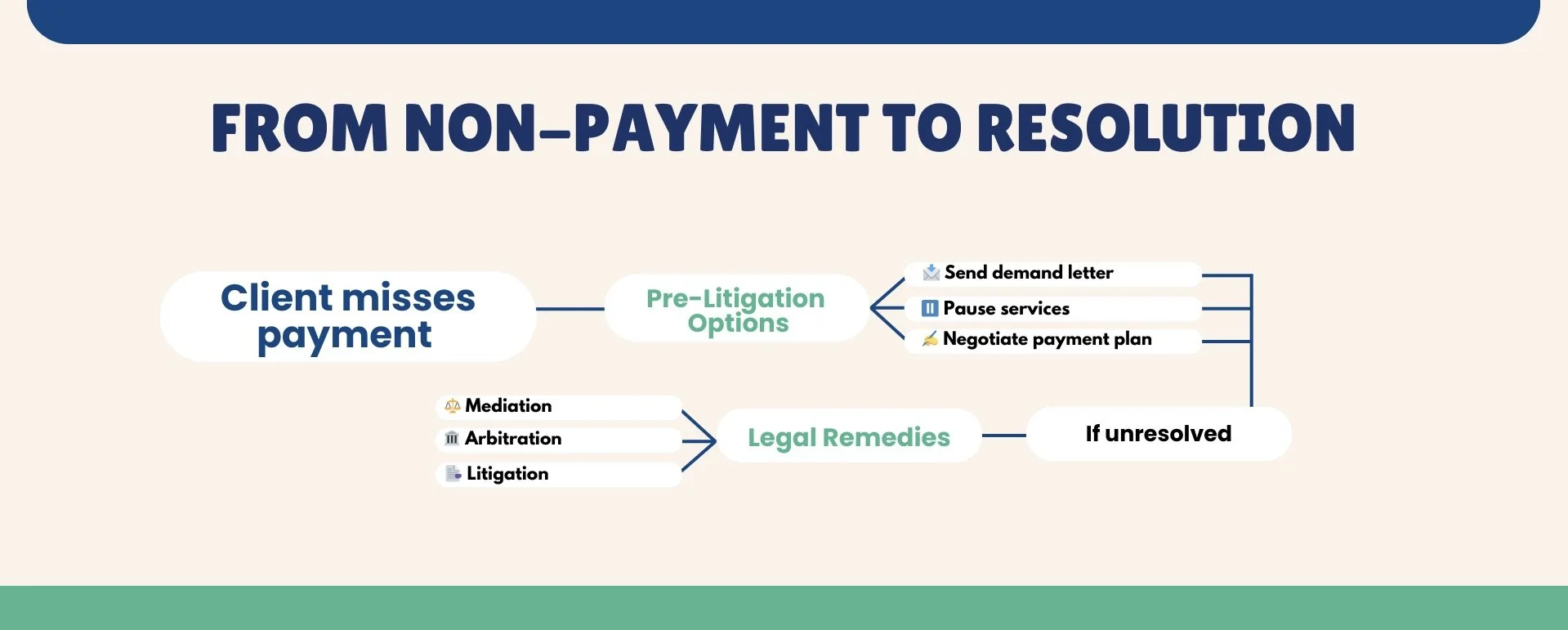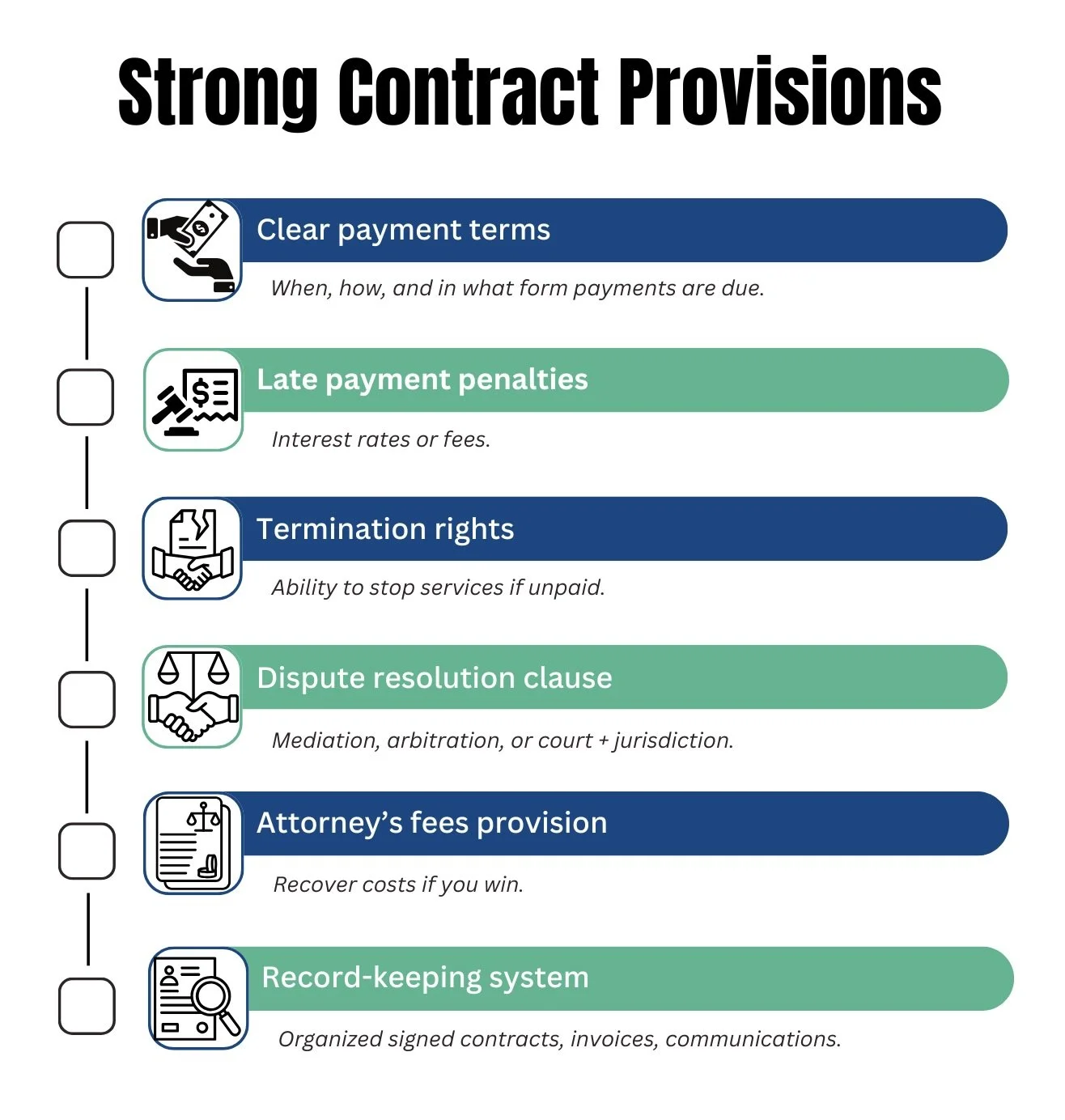When Clients Don’t Pay: Legal Remedies and Litigation Strategies for Breach of Contract
Whether you’re running a business, a delayed or missing payment from a client can be difficult to navigate, especially if you’re not sure how and when to enforce your rights. The starting point to preventing payment issues is having a solid contract in place, but even then, startups may have to deal with clients who delay or outright refuse to pay. When that happens, it’s important to know what legal remedies are available, and what you should consider when escalating to litigation.
From unpaid invoices to legal remedies: the escalation process every startup should know.
Here are some practical tips:
The contract: Your contracts with customers and clients are your first line of defense. Contracts should include: clear payment terms, late payment penalties or interest, and termination rights for non-payment. Your contracts should also include a dispute resolution clause that specifies whether any issues under the agreement will be resolved via mediation, arbitration, or court proceedings, and where these proceedings will take place. You can also consider including an attorney’s fees provision in your contract, which would allow the prevailing party in a legal action to recover their legal fees. Make sure that your business has a clear record-keeping system for obtaining and retaining fully executed contracts. Even without a written contract, emails or verbal commitments can sometimes be enforced as legally binding agreements, but collecting based on these can be more time-consuming and expensive, and having a formal written contract is the ideal.
Pre-litigation options: If a contract is breached, there are options to consider before commencing litigation or other dispute-resolution options, such as:
Sending a formal demand letter outlining the amount owed, the provisions of the agreement that were breached, and giving a deadline to resolve those breaches.
If permitted under the contract, you may be able to pause services or deliverables under the payments are current.
You can consider offering to negotiate payment plans with clients who are struggling to stay current. Any payment plan should also be documented in a signed agreement.
Legal remedies: If pre-litigation measures are not successful, you can consult legal counsel and pursue an action to recover any damages you are entitled to under the contract, such as compensatory damages, which would cover the amount owed under the contract, as well as interest and late fees, if stated in the contract and permitted under applicable state law. Sometimes, you may be able to recover consequential damages, which are additional losses suffered due to a breach of contract such as lost profits. Legal counsel can help you consider the strategic and business aspects to litigation, such as balancing the amount owed with the cost of potential litigation and the time it will take to reach a resolution. Arbitration and mediation can be faster and more cost-effective than filing a lawsuit, and it’s important to consider including one of these in your contract’s dispute resolution clause.
Key contract clauses every startup should include to reduce payment risks and strengthen enforcement options.
Final Thoughts
As a startup founder, dealing with unpaid invoices is more than a hassle: it’s a threat to your company’s bottom line and long-term success. Knowing your legal remedies, choosing the right enforcement strategy, and protecting your interests through smart contracts can make all the difference. If you're dealing with a non-paying client or want to review your contracts to make sure you’re protected, consult with legal counsel early.


